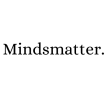Self Esteem Is Overrated
You don't need it, trust me

In recent times, there has been much more talk about “self-esteem”, how important it is for personal happiness and well-being. While It is true, that to find that oh so fleeting and ever-elusive state of satisfaction and fulfillment, self-love is a key component, to love oneself. This gives rise to one of the most clichéf phrases is that ‘to be able to love others you need to love yourself.’ as cliche as that sounds, it sounds true. But is that the full story? Is the key to my happiness simply a stronger self of worth, a boost to my self-esteem? Let’s explore that together.
Don’t Let The Concept Of Self-Esteem Damage Your Self-Esteem
…sadly Apple hasn’t made a watch for that
It may seem like my title is some sort of riddle, but when we look more deeply at the concept of self-esteem, we cannot help but conclude that it is a very subjective appreciation. No two people will define self-love in the same way. And since having higher self-esteem and loving yourself aren’t things we can measure (sadly Apple hasn’t made a watch for that) it is much more practical to talk about self-concept, what we think about ourselves; without the need to compare how we feel to how others profess they love themselves, to the thought ‘omg look, they look so happy on their Instagram’, always smiling on some beach somewhere, or strolling through the streets of Milan or Paris. They must be so happy and confident and love every single thing about themselves. We shouldn’t need to measure our self-worth or self-esteem through these litmus tests we have created for ourselves, since self-esteem simply isn’t possible to measure.
Self-Esteem Is A Construct
When we talk about self-esteem as a construct, I mean not only the obvious subjectivity of the concept but also that there are very few things we can say about ourselves that are totally objective. Perhaps only two things: I’m a human, or I have blue eyes, or my hair is a shade of brown.
Everything else we think of ourselves has been built up throughout our life. It depends a lot on what parents, teachers, and peers said, what they told us, the early experiences of childhood and adolescence, or even the perception we had about these things. All adult experiences, personality traits, and a hundred other things are all influenced by our environment, and that ultimately has shaped our identity of ourselves and our sense of self-worth.
What You Have Created You Can Create Anew
The very measures of your self-esteem, self-love, and self-worth are constructs that you have created. Just like everything you think of yourself is a construct; whether you love yourself or not, think you have any worth to the world, believe that you are good enough or not, deserve good things, all these concepts, these thoughts we have are things that we have worked out through the course of our lives. So just like we have created this image of ourselves in our heads, if there is any deficiency in your self-esteem, you, and only you, can change it, since whatever image you create of yourself, is just that, created, it is not the absolute reality, fixed and unmovable. You and you alone have the power to determine how you see yourself in this world.
Studies have shown that people who did not suffer from serious self-concept problems have certain habits that are commonly found in this type of person. Bringing some of these qualities into our lives will hopefully boost our self-esteem and sense of self.
Be wary of perfectionism. The pursuit of happiness is actually causing our unhappiness. We set the bar so high and idealize this thing, this concept ‘oh if only I could be happy, or if only I get x, y and z I would finally be happy and content’ and when we fail to find this elusive thingamabob, we only get frustrated and further damage our self-esteem.
Happiness is more complex than finding something and just like that, happy, it is a subjective concept and it is easier to fall into dissatisfaction if we don't arrive at this idea of happiness that in reality is different for everyone. Stop struggling to find a subjective idea that was possibly imposed on us through the upbringing that we believe is somehow necessary to improve our concept of that one has of oneself. In this way, we stop trying to meet expectations that nobody demands of us. It is better to live comfortably between perfection and failure than to see the world in black and white, success or utter failure, and be paralyzed into inaction due to fear of failure.
Develop your assertiveness. Do not be overly dependent on what others say or do, trust your intuition. Do not see yourself doing things you do not want to satisfy others, this will end up doing more harm than good, speak up for yourself if someone is making you feel uncomfortable or making you do something you simply don’t want to.
Boost your sociability. Establish social relationships that enrich you, avoiding isolation. You mustn't leave your old friends aside, let them know about any struggle that you are going through so that they are part of our healing, you’d be surprised at how open and understanding your loved ones can be if only you would share.
Although it may seem difficult at first, as we falter to reimagine our sense of self and mold it into the best version of us, taking one step forward and what seems like two steps back, remember this, our fumbling, faltering efforts at moving forward are some of the greatest steps we will ever take.
____________________________________________________
We made something a little great! The Anxiety Workbook, get yours by clicking here.
____________________________________________________
Want To Support Us?
You can like this story, tell a friend about it, buy us a coffee on Ko-fi, check us out on Medium, or all of the above! It all helps!
____________________________________________________
Want Even More?
Grab the latest updates from Mindsmatter. Exclusive stories, mental health resources, and more!
About the Creator
Mindsmatter.
Mindsmatter is written by Bola Kwame, Jack Graves and Emma Buryd.
De-stigmatizing mental illness one day at a time.
Our socials: https://linktr.ee/Mindsmatter






Comments
There are no comments for this story
Be the first to respond and start the conversation.